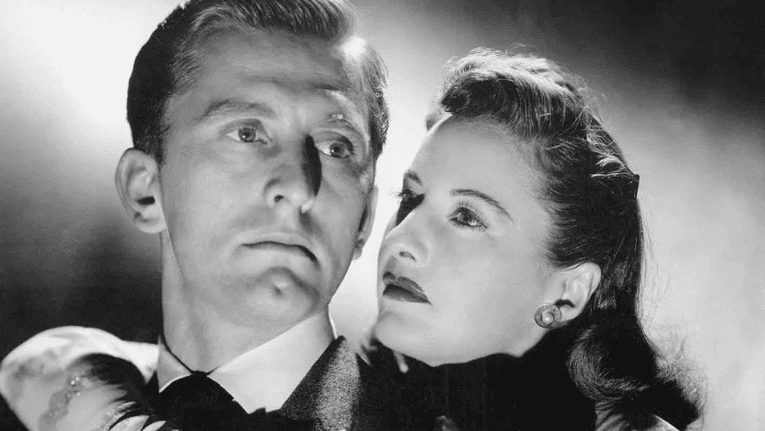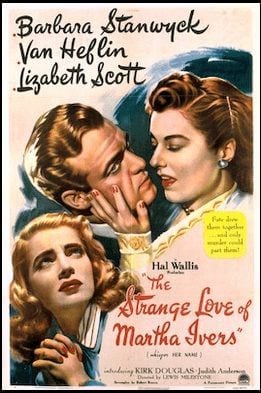Table of Contents
ToggleThe Strange Love of Martha Ivers

In the biblical story of Lot, Lot and his wife and three daughters are warned by an angel to flee Sodom before it is destroyed by God. The angel also commanded them not to look back; Lot’s wife disobeyed, turned back, and was turned into a pile of salt. Later on, believing that there were no more men on Earth, Lot’s daughters conspired to intoxicate him so that they could conceive children with him and continue the family line.
What does this have to do with a black-and-white film noir from 1944? Quite a bit. In case one is oblivious to the connections of these two tales, our main hero of the story, a man named Sam (played by Van Heflin) likes to remind those around him of who Lot was and what happened to his wife (but not so much the incest). The film in question, The Strange Love of Martha Ivers, might not exactly be the 20th-century version of the literary and artistic topos known as the “power of women,” but there are parallels. Jonathan Hajdamach called the depictions of Lot in the topos “a cautionary tale on the dangers of lust and alcohol,” raising “more profoundly complex questions about duty, sacrifice, free will and circumstance.” These are all, to some degree, present in this movie.
All of these themes as they relate to the film, based on the short story “Love Lies Bleeding” by Joh Patrick, are sparked by a diabolic rainy night. In these opening moments, a young, wealthy girl named Martha (Janis Wilson) hopes to run away with her young friend (or boyfriend?) named Sam (played as a teenager by Darryl Hickman). This is very much against the wishes of Martha’s aunt (Judith Anderson), who has guardianship over her. Martha’s aunt is described by someone as a kind woman. She is anything but, smacking her niece and insulting her with such icy cruelty by describing her father as a nobody.
Director Lewis Milestone, cinematographer Victor Milner, and set designers Sam Comer and Jerry Welch effectively created an atmosphere of eeriness with a heightened, old-fashioned style that includes frequent thunder and lightening. The final product is an opening that is perfectly melodramatic—that score by three-time Oscar winner Miklós Rózsa, that cinematography, and that dialogue provided by Robert Rossen and Robert Riskin all are fruitful at setting the tone for this film and that feeling that sinister actions by people have consequences that never truly vanish.
This is a spoiler-free review, but it is important to know that a terrible event that happens in Mrs. Ivers’ home sets about the consequences that dominate the present-day scenes. The “scared, little kid” known as Walter, who was with Martha when the event happened, has now grown up to become a political figure and completely under the thumb of Martha, who is now his wife. Here, adult Walter is played by a baby-faced Kirk Douglas in his film debut. (Douglas was recommended to producer Hal B. Wallis by Humphrey Bogart and Lauren Becall, who was a drama school classmate of Douglas’.) Before we even meet the adult version of Walter, he’s described as someone who is “gonna be whatever his wife wants him to be.” (This character also uses the word “malarky,” which definitely dates the movie and probably dates the current president, who was actually born two years before the film was released.) Martha herself is quite successful, building up her father’s business prodigiously. Regarding their love, though, it’s one-sided, with Martha not reciprocating the affection Walter feels toward her.
The Strange Love of Martha Ivers
by Chris in Drama / Film Noir Posted on 10/04/2024 13:42 on – PUBLIC DOMAIN FILM REVIEWS

